Shin Yu Pai
Host, Ten Thousand Things
About
Shin Yu Pai [pronounced Shin Yee Pie] is the current Civic Poet for The City of Seattle (2023-24) and host of KUOW's podcast Ten Thousand Things (formerly The Blue Suit). Shin Yu is a 2022 Artist Trust Fellow and was shortlisted for a 2014 Stranger Genius in Literature. She is the author of eleven books of poetry, including most recently Virga (Empty Bowl, 2021). From 2015 to 2017, she served as the fourth Poet Laureate of the City of Redmond. Her essays and nonfiction writing have appeared in Atlas Obscura, NY Times, Tricycle, YES! Magazine, The Rumpus, Seattle Met, Zocalo Public Square, Gastronomica, City Arts, The Stranger, South Seattle Emerald, International Examiner, Ballard News-Tribune, Seattle’s Child, Seattle Globalist, and ParentMap. Shin Yu’s work has appeared in publications throughout the U.S., Japan, China, Taiwan, The United Kingdom, and Canada. She is represented by Tyler Tsay at The Speakeasy Project.
Stories
-
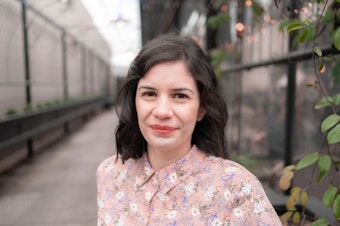
Poet Tanya Holtland laments the toll of environmental apathy
In her Ballard-based poem "Golden Gardens," Tanya Holtland contemplates environmental pollution and its impacts on non-human species and future generations.
-
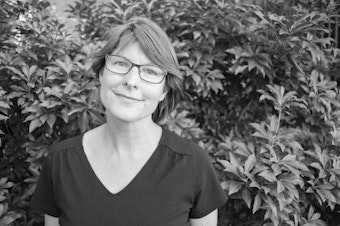
Suzanne Bottelli's poetic moments of watery quiet
Suzanne Bottelli's poem "What the Dog Saw" is rooted in and suffused with the watery quiet that can characterize some Seattle moments, bringing some consolation to difficult days. Bottelli is the author of "The Feltville Formation." Her poems and book reviews have appeared in Poetry Northwest, Scoundrel Time, The Literary Review, Fine Madness, West Branch, and Prairie Schooner, among others. She has been a Jack Straw Writer and a finalist with Persea Books, Black Lawrence Press, and Poets@Work.
-
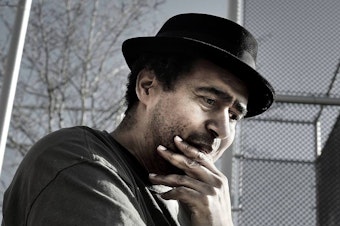
Poet Omar Willey's 'incantation' pays tribute to ancestors of Seattle's First Nations
Born in Seattle, Omar Willey is the publisher of the online journal of arts and culture, "The Seattle Star," in which he writes about performing arts, science, experimental film, and open culture, as well as poetry.
-
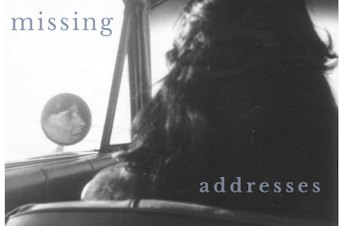
Remembering the intellectual clarity of the late Beth Bentley's poetry
Beth Bentley was a teacher and poet who, along with her husband — poet Nelson Bentley — left an indelible mark on Seattle's literary scene. When she died in 2021, she and her son Sean were working on her final poetry collection, titled "Missing Addresses," which is set to publish this month.
-
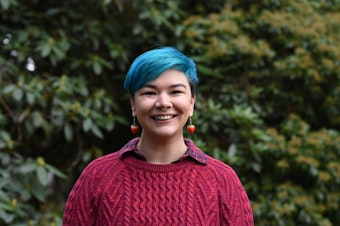
Poet Ally Ang contemplates the delight of welcoming springtime in Seattle
"In Spring in Seattle," poet Ally Ang contemplates the unending gray Pacific Northwest skies that eventually give way to light and new growth, while practicing patience.
-
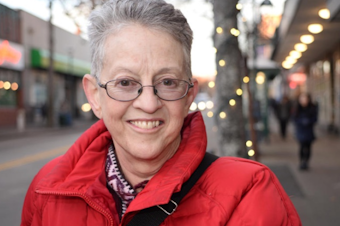
Poet Melinda Mueller gives voice to Cascadian ghost forests
Melinda Mueller was a coauthor of an early list of rare, threatened, and endangered plant species of Washington State. Her scientific knowledge and deep attention to nature give voice to the ghost forests that were once verdant woodland in her poem "Larva."
-
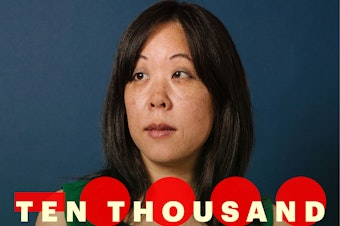
The Blue Suit is back... now as Ten Thousand Things
In many Chinese sayings, “ten thousand” is used in a poetic sense to convey something infinite, vast, and unfathomable. For Shin Yu Pai – award-winning poet and museologist – the story of Asians in America is just that. Introducing Ten Thousand Things, a special podcast series about modern-day artifacts of Asian American life, created and hosted by Shin Yu Pai and produced by KUOW.
-
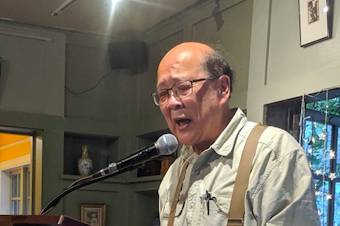
Poetic treasures from Alan Chong Lau
For decades, Alan Chong Lau worked slicing, cutting, and trimming produce at Uwajimaya, while making art and writing poems about his observations of the neighborhood. He chronicled his experiences in a book of poems called "Blues and Greens: A Produce Worker’s Journal."
-
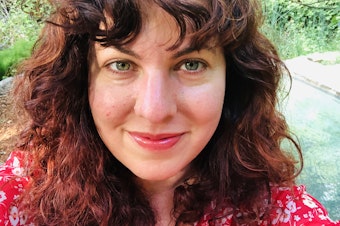
Poet Samar Abulhassan on a historic beauty salon in Seattle's Central District
In "Sacred Bowl", Samar Abulhassan contemplates the living history of the the DeCharlene Salon, a Black-owned shop with more than 50 years of being in business within Seattle's Central District. During the pandemic, the rapport that Abulhassan established with the granddaughter of the salon's original owner helped her to feel connected to others and herself.
-
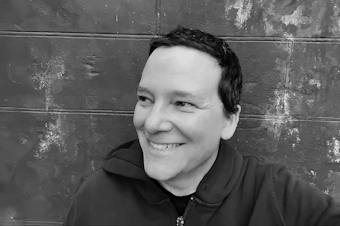
E. Briskin on navigating Seattle drivers
In "Seattle, this poem isn't real—", E. Briskin delves into the habits of Northwest drivers who have been found in a recent independent survey from PEMCO Mutual Insurance to be less courteous and more aggressive than in recent years.